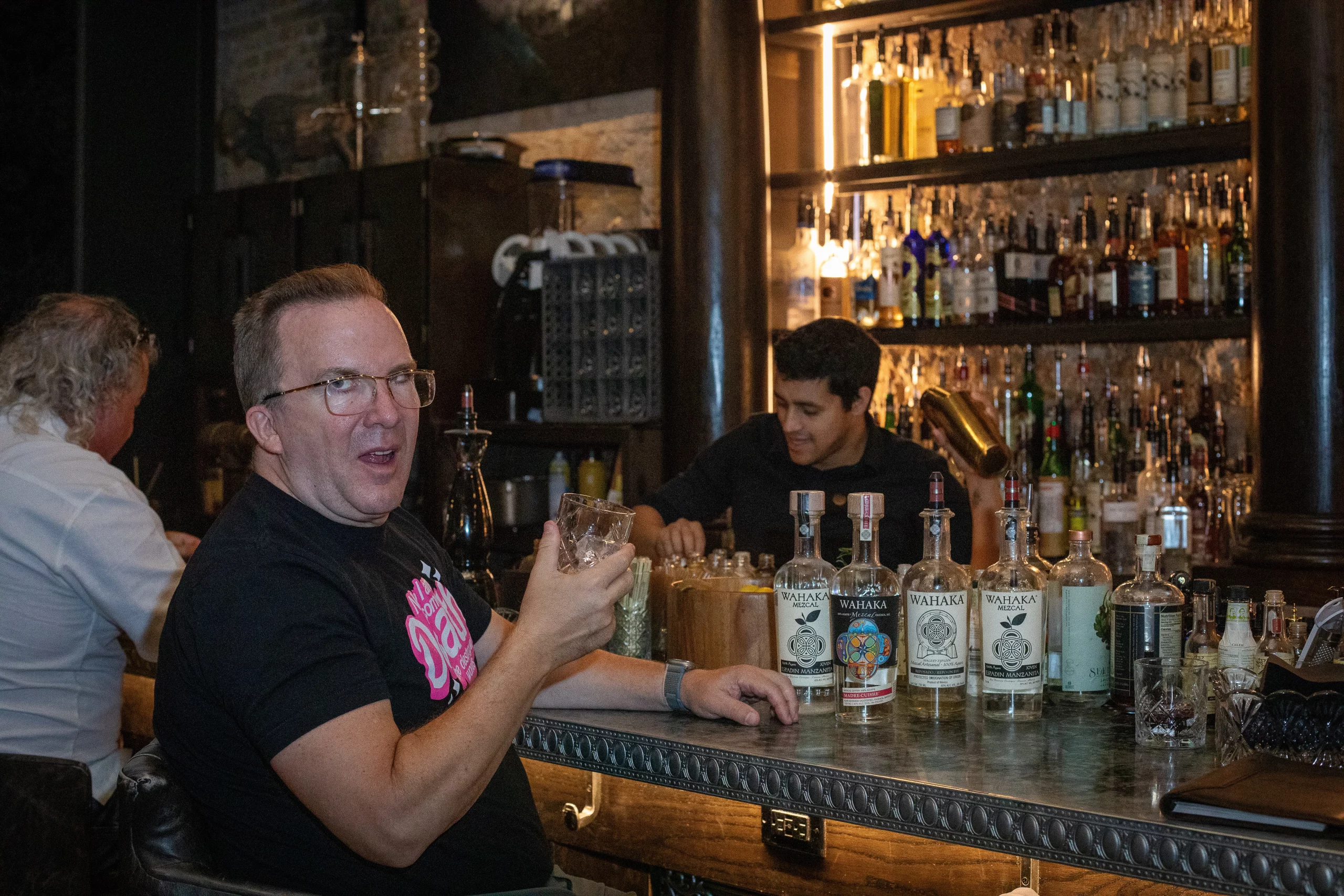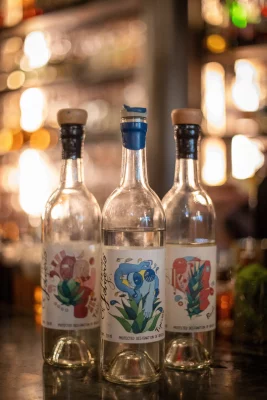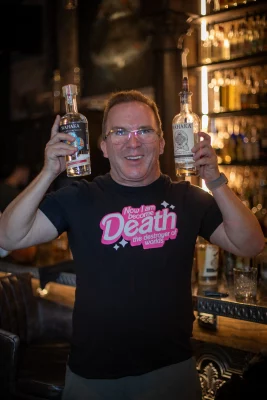
Time For a Bigger Machete: Mezcal’s Slow but Steady Process With DABS
Beer & Spirits
2016 marks a major turning point for Wahaka Mezcal’s acceptance in state liquor stores. To fully understand how notoriously difficult the Utah Department of Alcoholic Beverage Services (DABS)—formerly known as the DABC—can be, SLUG sat down with Francis Fecteau, wine broker and owner of Libation, LLC, to discuss the trials of mezcal in Utah. After years of rejection and a complete reprogramming of the distinction between mezcal and tequila, the DABS finally allowed sales for the tantalizing drink to hit the shelves. Wahaka is still in full stride, having garnered a cult following since its discovery. The thrill-seeking drinkers can’t get enough of the spirit, which is historically made from dozens of agave species, harvested with a machete and roasted in clay ovens. However, Fecteau notes that the journey for mezcal itself is just getting started.

Before 2016, mezcal was commonly lumped in with tequila, disappearing into the thrashing sea of reposados and blancos. Those with a keen eye and fortified taste buds, however, can fully indulge in the diverse categories that mezcal conceives. “If anything, the thirst for mezcal had proceeded to grow, through leaps and bounds … especially with the trade,” Fecteau says. Seven years later, the DABS has recognized the increasing demand for the artisanal spirit, yet they have oversaturated the market with generic spirits. Where one mezcal meets the shelf, an abundance of analogous tequilas of various shades and prices will follow suit. “They’ll be adding more $50 blanco tequilas, which is like adding more vanilla flavors to the ice cream market,” Fecteau explains. It’s this so-called “vanilla-fying” that causes great distress to the mezcal market, and in turn, dampens smaller local companies from gaining that visibility.
“They’ll be adding more $50 blanco tequilas, which is like adding more vanilla flavors to the ice cream market.”
Another major hurdle that artisanal mezcal producers must tackle is copycats—half-assed, bootleg batches from global mega-brands such as Casamigos. Through outsourcing ingredients and rushing production, Fecteau charmingly refers to the process as “the bastardization of something good.” He warns, “They’re just generating mezcal because it’s super hot right now.”
For those who want to adventure out of their comfort zone and understand how well-crafted mezcal can be, Fecteau calls back to distinguishing a real mezcal from a fraudulent one. Many might try to compare it to tequila with its smoky and robust nose, but for Fecteau, that’s a red flag for a gutter swill. “Mezcal doesn’t taste like smoke. To me, it tastes like plants and flowers,” Fecteau explains, comparing the flavor profile to a botanical spice. “Thanks to Wahaka, mezcal has awakened my imagination more than any [other] spirit.” To simultaneously show support for mezcal and local businesses, Fecteau also recommends checking out local bars and restaurants showcasing mezcal on their back walls. To fully capture your spiritual hunt, start by slow-sipping at Lucky 13 or consider sampling a mezcal with a luxurious entree at Lake Effect. Other notable mezcal producers found in Utah bars include El Jolgorio and Macurichos. “Obviously, the worst place to look for mezcal is [a place where] it’s not on the shelf,” Fecteau laughs.

Thanks to Wahaka, mezcal has awakened my imagination more than any [other] spirit.”
Though mezcal’s future may seem cloudy, Fecteau sees it bright with high hopes and high beams. Of course, the “nature of the beast” will always give the public the spirit they think they need through commercials and publicity, and DABS will always present obstacles for more alcohol companies to navigate. However, Fecteau believes the campaigns will only last so long before the public is bored of shoveling those same bottom-shelf products. “People will never let go of their corporate brands—they need their ‘binky’ or ‘blanky,’” Fecteau says. “… but there will always be those who seek out the kinky, the new, the different when they have a genuine fascination for [all spirits].” As we venture on through the tangled jungle of Utah’s liquor laws, one must carry the knowledge and daring personality to cut through the brush.
To seek out more recommendations on inspiring spirits and pairings, follow Francis Fecteau on Instagram @libationslc.
Read more on beer & spirits here:
Brew News
Simplicity Cocktails: Experimentation Distilled